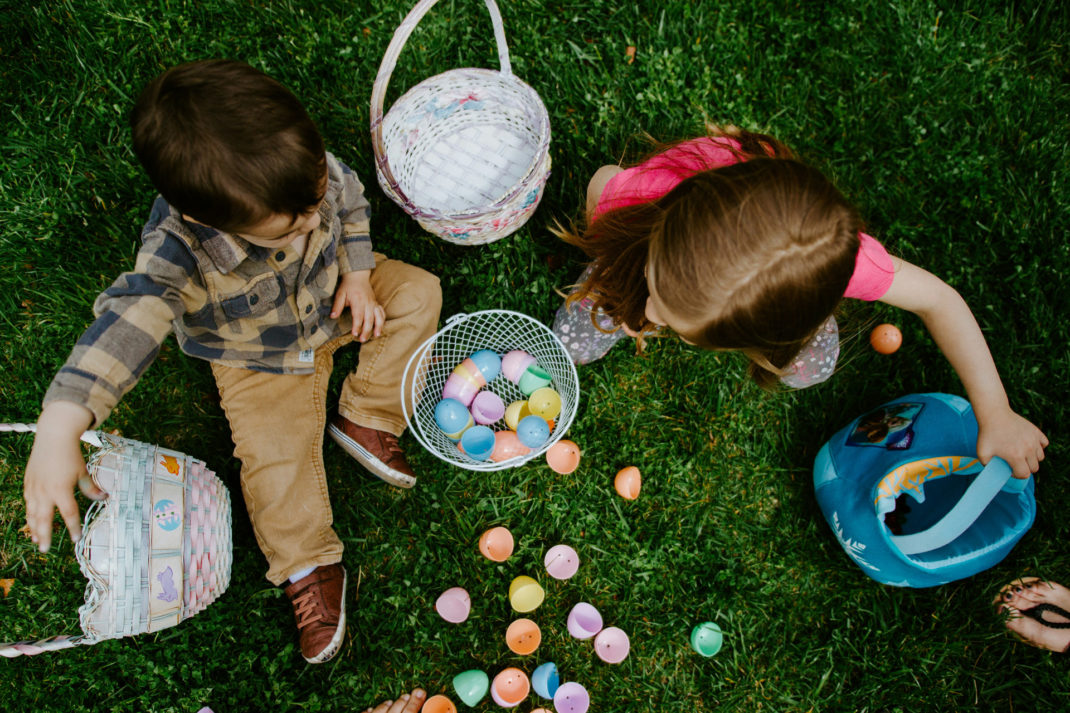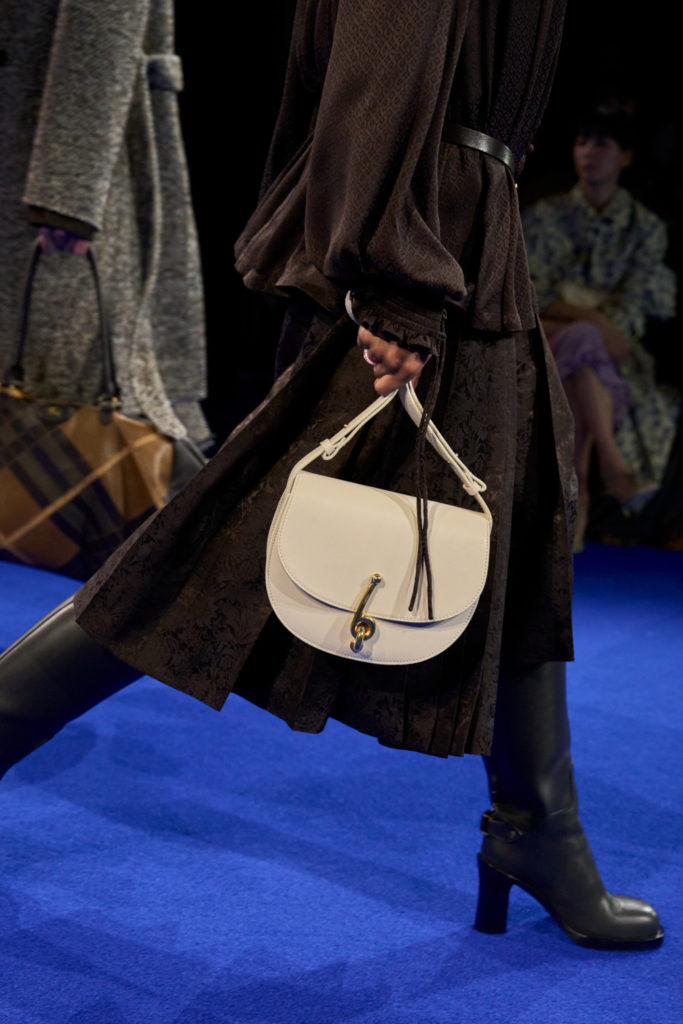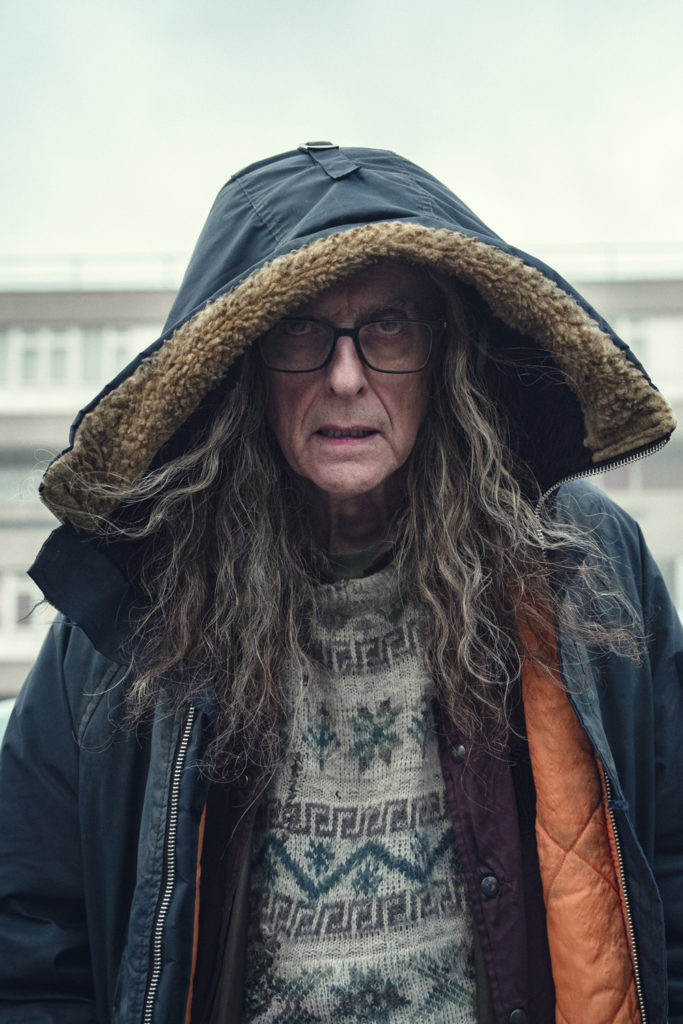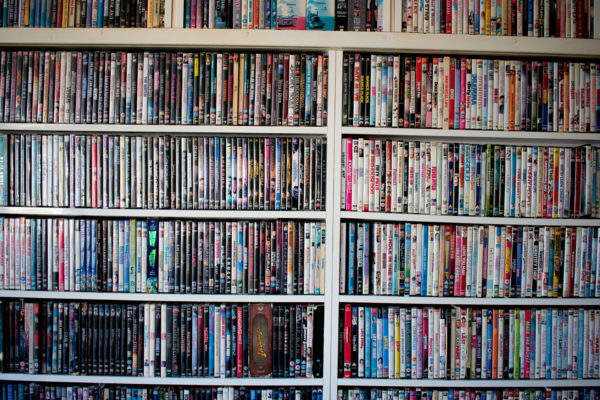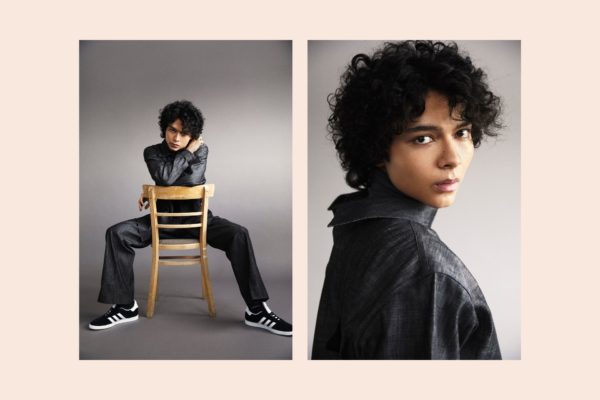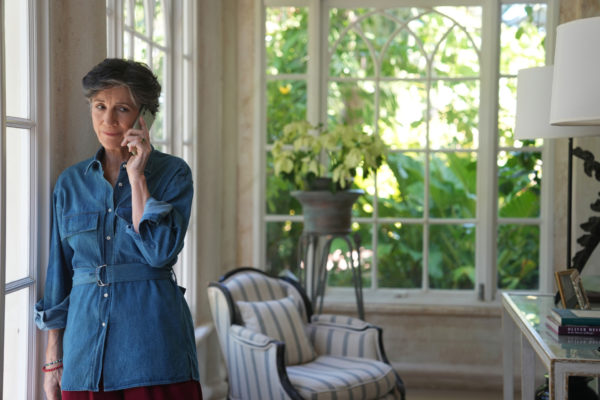Catherine Hardwicke: ‘People Didn’t Even Think Twilight Was Going To Be Successful’ – Interview
By
2 years ago
We sit down with Catherine Hardwicke to chat about Tell It Like a Woman, which can be rented now on Prime Video
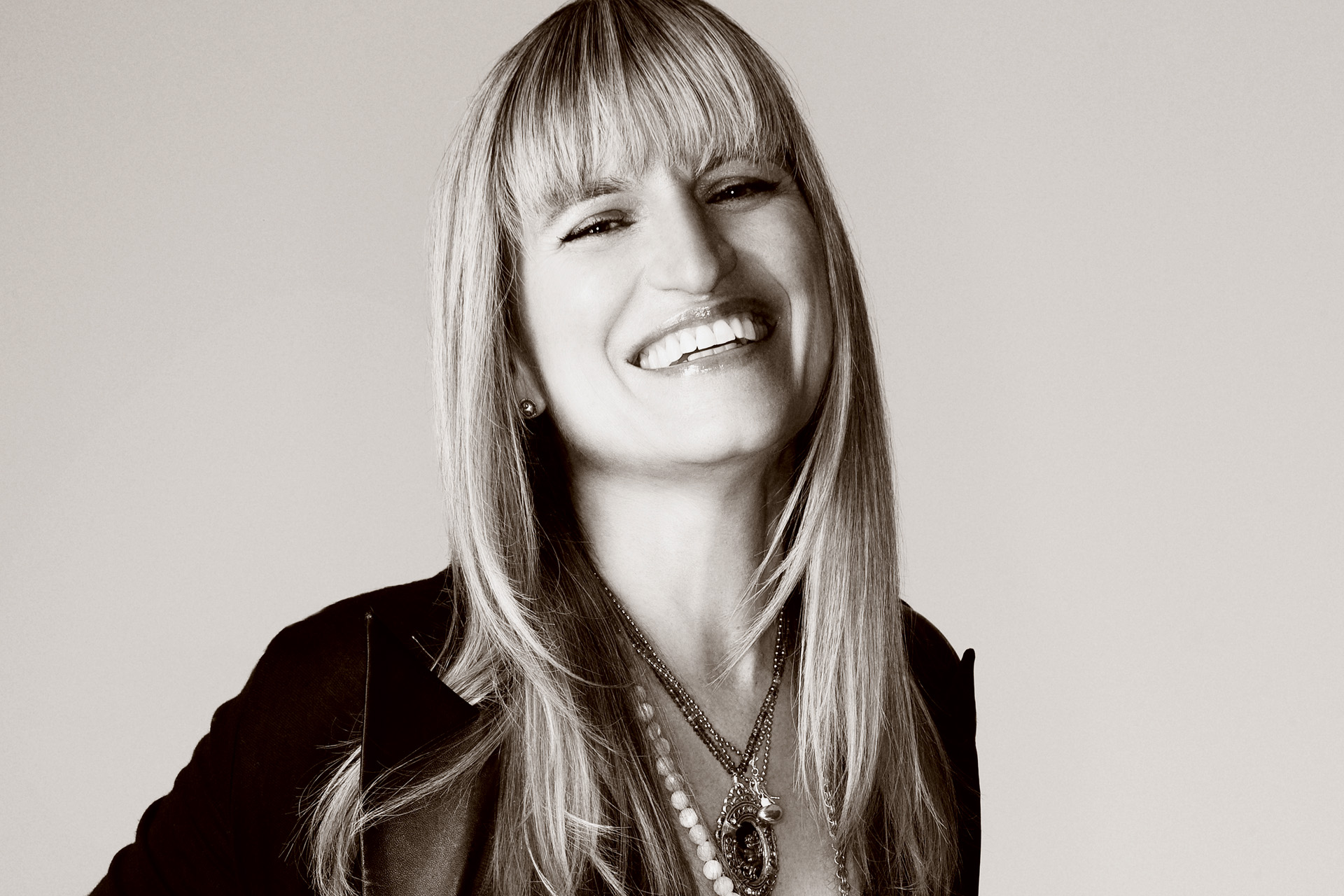
Comprising seven short films all starring and directed by women, Tell It Like A Woman premiered at the Taormina Film Festival in 2022, and scooped a surprise Academy Award nomination for Best Original Song. Starring the likes of Cara Delevingne, Eva Longoria and Jennifer Hudson across the films – some inspired by true stories, others narrative fiction – one of the talented directors on the project is Catherine Hardwicke, who tells C&TH the all-women experience was ‘exciting to be a part of’ and ‘so unique’. Catherine most famously directed Twilight (2008), as well as Thirteen (2003), Lords of Dogtown (2005), Red Riding Hood (2011) and, most recently, Mafia Mamma (2023). We sat down with Catherine to talk about her two short films in Tell It Like A Woman, as well as career highlights to date, including what it was like to direct the global phenomenon, Twilight.
Stream Tell It Like A Woman via Prime Video
Interview: Director Catherine Hardwicke
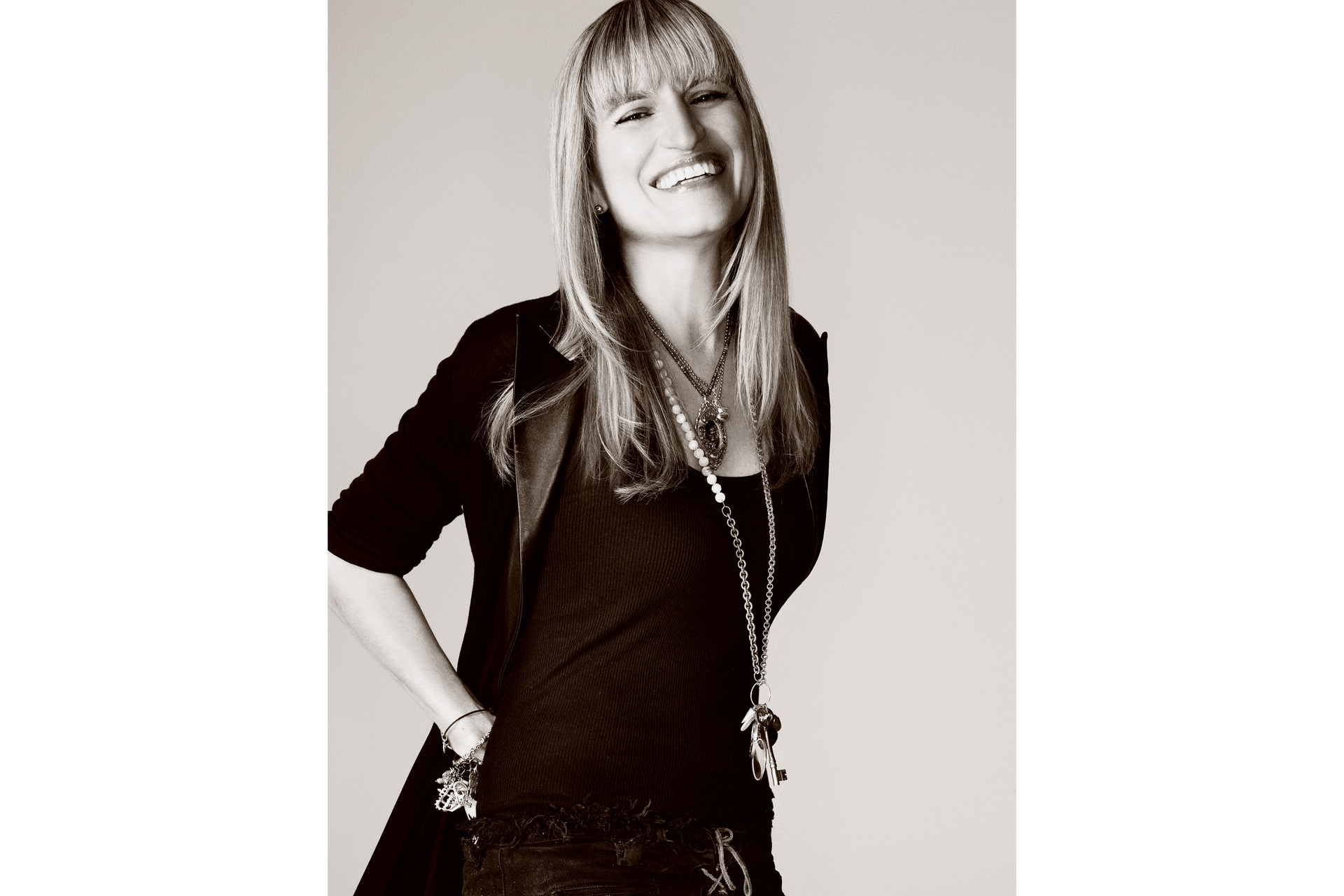
Catherine Hardwicke, photographed by Gilles Bensimon
Hi Catherine, how’s life going at the moment?
I’m good but, well, the Writers Guild is on strike. So Hollywood is kind of in a state of confusion, you know? ‘What’s happening? What can we do? Can we keep working?’. But I just finished a Hulu series – I did an episode for that, and just got back from Vancouver. I’m thinking positive, working on all kinds of projects, and trying to get the next one going.
Are you striking?
Yeah! I’m in the Writers Guild, so I’m on strike.
Very relatable in the UK. Tell It Like a Woman is about to be released – can you tell us about the project?
Yeah. An Italian woman, Chiara Tilesi, came up with the idea of hiring female directors from seven different countries to tell women’s stories from seven different countries. So almost all the crews are all women, the subjects are women, the directors are women, the DPs [director of photography] are women. So it was really exciting to be part of that, and see this worldwide project happening.
How did that feel? Do you often have sets where it’s mostly women?
Not really. I mean, I just did this Hulu show and I looked around on Tuesday and just saw, like, a million dudes, and maybe two women. So it’s unique. You really do have to make an effort.
How did you get involved?
Chiara called and said that she thought that I might relate to what she’s trying to do with this overall project, overall movement, and I was like, ‘Of course!’. And then she said, ‘We will give you the opportunity to direct a short film – say, up to 15 minutes. You could do it on really any subject you want, just be sure it’s got a woman as a star, and tells a woman’s story.’ So I thought, ‘well, it would be great to do something about a real woman that’s actually quite heroic and doing something amazing. And then maybe I can celebrate her, help her cause and all that.’ So I searched out both of the two women that I wrote about, and found the remarkable things that they are doing in their life. They’re very courageous, helping parts of society and the most vulnerable women in society that people usually ignore or neglect.
Is it common to get such freedom? Have you worked on many projects where it has just been like completely in your hands?
Not really, you’re absolutely right. It’s very challenging because, mostly, people in Hollywood want to do sequels or something based on a famous book or novel. So you rarely get to do something original. And, if you do, it’s a big fun struggle pushing that rock up the hill. Like when I did Thirteen [Hardwicke’s directorial debut], that was based on a true story, but not a novel or anything – nothing famous. So every studio said ‘no’, nobody wanted to do it. We had to make it for $1.5 million, using all my clothes, car and furniture. It’s usually a struggle to get to do something that you believe in.
What was the process of making Tell It Like A Woman like? Was it quite collaborative?
Yes, it was. One of the women is Kim Carter – that’s the one that Jennifer Hudson plays. She was just very open. She showed me her whole operation. I met all these people that she works with – women that are just out of prison, or homeless – that she’s building housing for, helping reunite with their kids, and teaching them skills to get jobs, how to cook, good nutrition… I was amazed and she was very open, showing me everything, telling me stories – like, very personal stories, one of which I used to write the screenplay.
And then the other case, Dr. Partovi, I went with her to the homeless clinic, and I watched even as she examined patients – with their permission, of course – and I saw how patient she was, non-judgmental, helping these people that really had no one else that cared about them. It was pretty amazing. So they were very collaborative. And then the actors were great; they had comments and ideas they brought to it. They met the real people – collaborated with the real people.
Watch the trailer for Tell It Like A Woman below
It sounds like you were quite close to the story!
I was very close, yes. In fact, where I live in Venice Beach, during the COVID crisis, we had a huge encampment, like literally five houses from where I am right now [in her house]. So I went down there and did a lot of interviews with a lot of women. Cara Delevingne, when she was preparing her character, she watched all the interviews. I didn’t want her to go down there, because we shot it before there was a vaccination, and I didn’t want her to get sick because I wanted to make the short film. But she looked at all the interviews with all these women that were very open to showing me and telling me what their life was like, on a daily basis – what their fears were, how difficult it was to go to the bathroom, even, without being assaulted or something. So that’s why her character covers herself with layers and layers – she saw it as protection, so that her skin was buried. We had 26 layers on her.
That’s almost like documentary research – very nose to the ground. Do you always do that with your projects?
Yeah, I try to. And, I should say, even Cara was. She came here to my house and helped make the costume for her character. She drew on it, and SportShift cut it up. But on Thirteen, of course, I wrote it with a 13 year old girl who was living that life. I knew her whole family and I was at her house all the time, trying to help and filming things. So that was my first chance at being that deep. Lords of Dogtown, the same thing. I live in Dogtown, so I was always out on the street and all the actors came, and they rented places right near here in Dogtown so they could live the real thing and let the ocean wash their hair.
What is it like being a director? What is the gap like between your big projects?
It’s a good challenge. As a director, you have your passion projects that you really care about. When I made Thirteen, I only worked on that. I used to be a production designer on some big movies like Vanilla Sky and Tombstone, but I said I’m not taking any jobs. I told my agent, ‘don’t put me up for anything, I’m not doing any interviews, because I’m gonna get my own movie made!’ And nobody really believes you, because everybody thinks, you know, ‘Oh, right, “I’m going to be a director”’. So every minute of my life, I was just trying to figure out another way to triangulate the process to get it made. Like, ‘what if I called this person? What if I do this? What if I did a storyboard? What if I made a soundtrack to it? What about that?’. So, all day long, I was just doing something to get the movie to happen.
That’s what I tried to do on my next job, but it didn’t work. I spent a whole year trying to get something that I believed in – an environmental activist project, called The Monkey Wrench Gang – made, and I could never get it made. So then you start to realise, ‘Oh, I’ve got to have two or three things going, because maybe the timing isn’t right’. You could spend a year of your life, two years of your life, and nothing could happen.
So now I have to juggle things, have multiple projects, try to be open to something that somebody sends me. Like, when Twilight came to me, I hated the script. It wasn’t the script we used. I threw the script away. But I went and read the book, and I thought, ‘I could see a better way to do this than the script’. Because, in the script, Bella was a track star and she was chased by the FBI and had to escape on a jet ski. And I’m like, ‘No! This is nothing like the book! This is not why people like the book. It’s a love story, not like an action jet ski movie!’ So I had to take a script, and then figure out a way to make it my own or bring it back to the original essence of the project. So sometimes you’re trying to figure out, ‘do I like this enough to work on it, and change it and make it mine so that I feel good about it? Or is it not worth my time, I’ll never really love it, I’ll never be able to make it good?’. You’re always juggling.
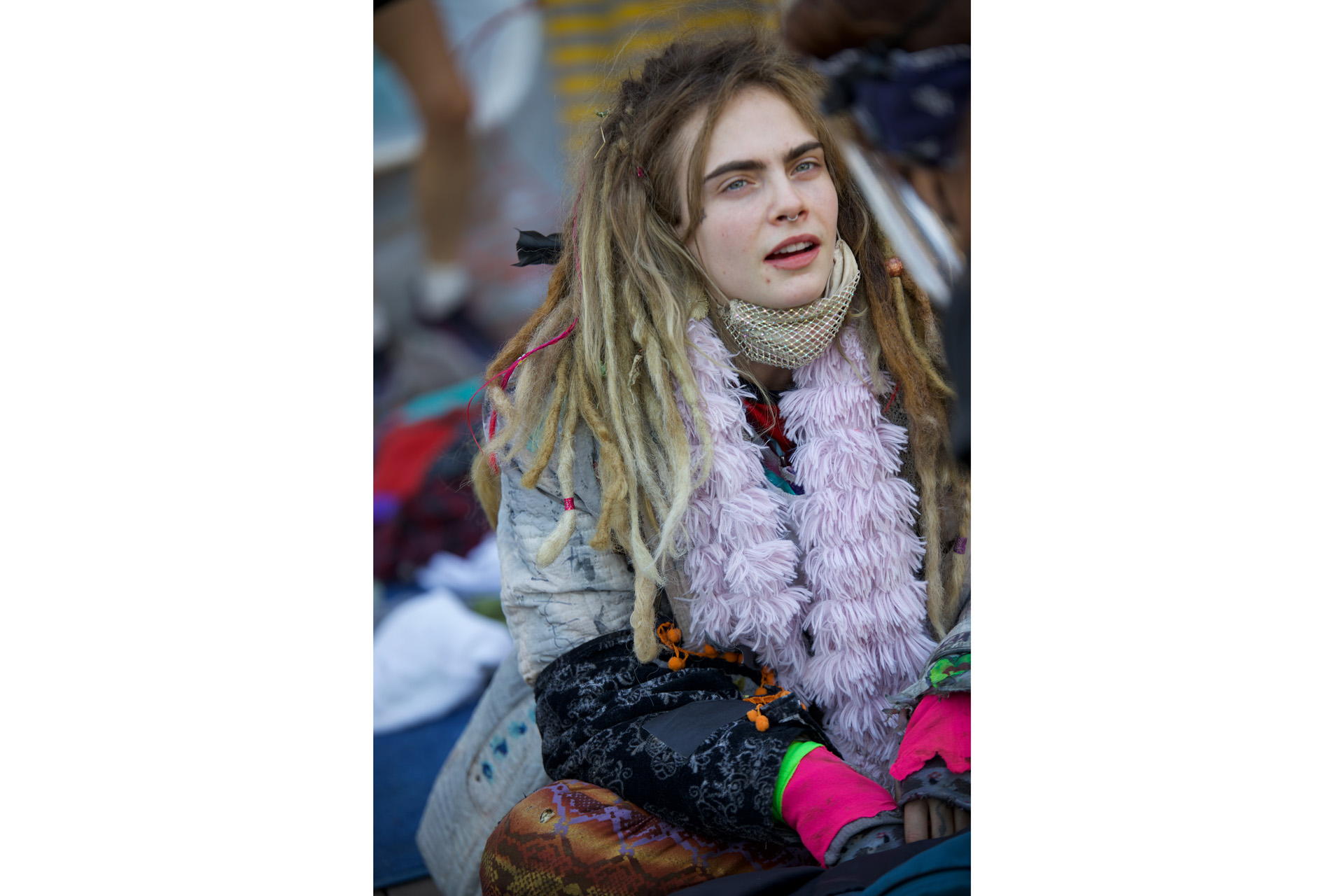
‘We had 26 layers on her!’ (Cara Delevingne in Tell It Like a Woman)
I’m a huge Twilight fan. It’s so amazing that you stuck by the original text, despite the script being written as an action film to make it more commercially viable. Twilight was, of course, a book written for women. Do you ever experience pushback when pursuing a project aimed at women because it isn’t ‘commercially viable’?
Well, Twilight obviously broke the mould, and it led the way to films like The Hunger Games – another film about a young woman in the lead. But even so, it broke the mould on one level, but there’s still a big challenge many years later. How do you connect to older women audiences? To all ages? How do you connect to a female audience, even if there’s not a passionately loved book behind it? So there’s still challenges. How do you get the movie to appeal to date night? I always hear that. ‘Make sure the man – the husband or the boyfriend – would want to go, too’. So there’s still all those challenges.
After Twilight came films like The Hunger Games and Divergent – and they really have Twilight to thank for their greenlight. How does it feel to have triggered a bit of a renaissance in women-led films?
It’s pretty fun to think about it! It was a very interesting journey. People didn’t even think it was going to be successful, so to watch it go from being rejected by all the major studios to becoming that crazy success? That was a wild ride to have a front seat view from. From Rob and Kristen to being unknown to being actually not liked – you know, when Rob was chosen there was a lot of negativity – and then suddenly they are the biggest stars in the world. So what an interesting thing. I love that it brought so many people together. I met so many different young women and girls that said that they didn’t have friends until they connected with somebody in New Zealand or in Wales that also loved it, and now they felt connected to the world. And people that were dyslexic told me they learned to read, to read the books after they saw the movie. So I think many beautiful things came from it.
It also came in those early days of internet fandom that brought so many different corners of the globe together.
That was so fun. I went to a few of the Twilight reunions and tours. And I saw women from all over the world there that had made that pilgrimage to come to Forks or wherever. It was really fun.
You only directed the first instalment. Do you ever wish you’d stayed on to direct the subsequent films?
I loved doing the first one because, for me, I just loved casting the actors, finding the people, finding the location, really creating the mood and the spirit. I think it was good that I got to do the one that I love the most – the book that I felt the most connected to. That was the most pure, that book – it came to Stephanie [Meyer] in a dream. It was very original, having vampires in a forest like that. We’d never seen that before. So I’m happy I did that.
You completely kickstarted the careers of Robert Pattinson and Kristen Stewart, who are superstars still. Robert Pattinson is Batman now! How does that feel?
They’re so great. And they met here in my house. They auditioned on my bed and in my kitchen. So it was quite a unique experience!
And what is your director life like on a day to day scale?
Well, this week, for example, I flew to Vancouver, shot this Hulu show with a techno crane and a Steadicam and a big crew on the cliffs of a beautiful Vancouver island. That’s a very serious drama – a beautiful project. It’s called Under the Bridge. And then I flew back on Wednesday, so I’ve only been back one day this week. I’m actually working on several projects, and a few that I wrote. I’m creating a lookbook for one of them, where people can see my vision of what the characters could look like – how they could dress and everything. Then people are sending me scripts, saying, ‘do you want to direct this?’. So then I’ve got to read it, watch all the movies that are relevant, have smart things to say, have the zoom meetings with people and, you know, try to think, ‘Could I do a good job on this? Am I the right director? Is this the right thing for me to put my heart and soul into?’ So I’m working on multiple things, and I’m probably going to go to the picket lines next week!
Do you get a lot of scripts through where you think ‘this is going to be amazing, but I’m not the right director for it’?
Yeah, and sometimes I think I probably shouldn’t do this one, because I’m not from that culture or that vibe that they’re going for, and I didn’t really live it, and I’m not that interested in it, maybe, or it’s just no speaking to me that much. So it would just be a job. Usually, if it’s a feature film, that’s a long job – that is a year or two. If it’s a TV show, you can jump in and spend a lot less time on it, and in one episode you could meet a lot of really interesting actors and people, and you don’t have to devote so much time to it. I try to balance it. ‘Could I put my heart into this for two years? And believe in it and keep pushing for it?’.
There are always going to be challenges – everything’s going to have a lot of problems and difficulties. I mean, even Tell It Like a Woman, we shot in the middle of COVID, before there was a vaccine. I had to change the script to move it all outside because nobody wanted to work in a small space. The real story took place in a hotel room, but we couldn’t work inside a hotel, for COVID reasons and ventilation. So I said, ‘well, maybe she escaped her room and went out by the pool’, which they did all the time – people would go to off limits areas in the hotels where they were staying. So that was what made us be able to shoot that, rewriting it outside.
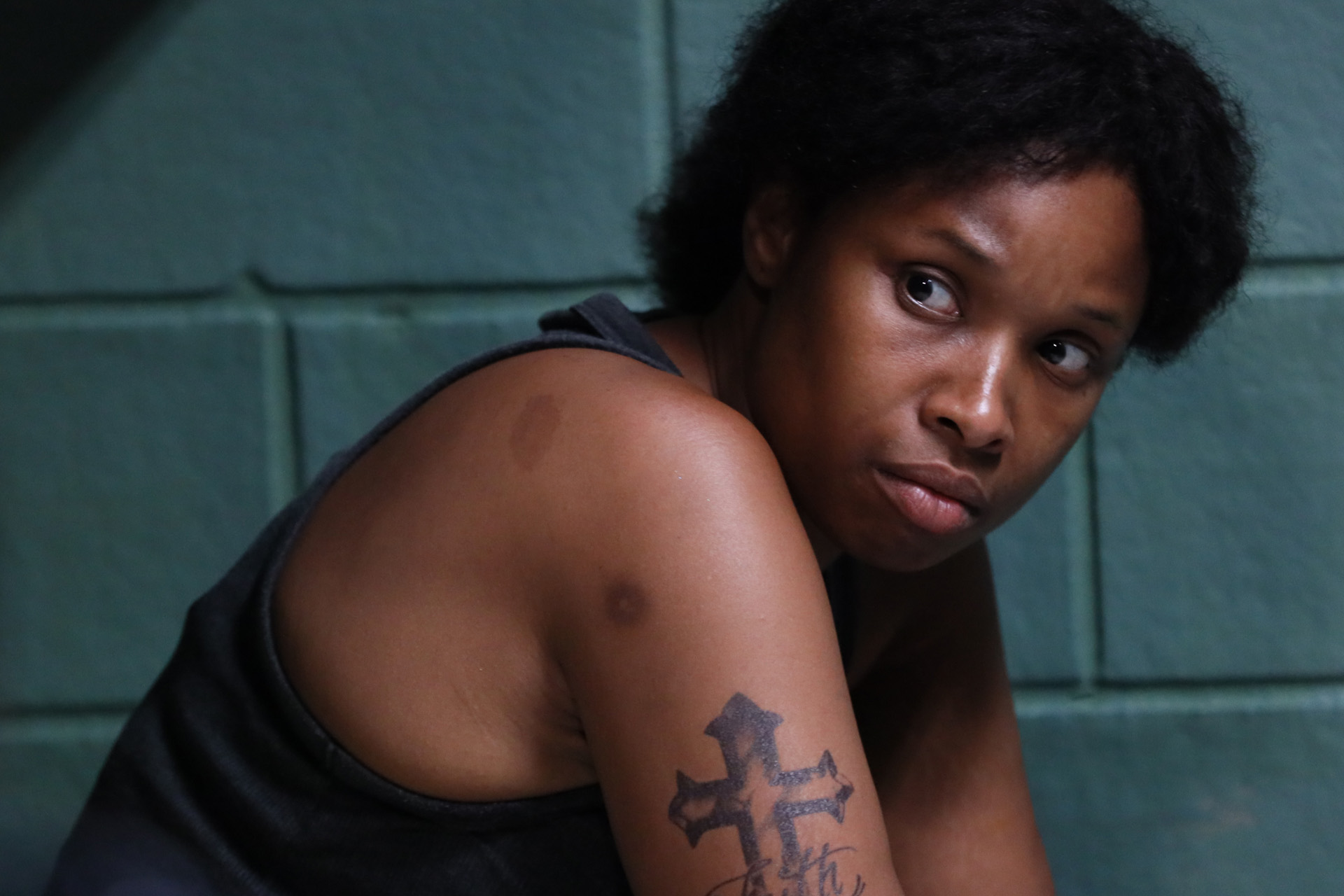
Jennifer Hudson in Tell It Like a Woman.
Did you always want to be a director? When did you realise it was something you wanted, but also something that was possible?
Well, I trained as an architect at the University of Texas in Austin. I got to build a lot of buildings, actually, by the time I was 22 or 23. Straight away, I had built a lot of real things. But I realised that people really wanted the same thing. If they want you to design a house or townhouse project, they want it to look like things that other people had. And I thought, ‘This is too conventional for me. I don’t want to keep repeating myself and doing things like everybody else’. I mistakenly thought that the film business would encourage creativity. I did not know about IPs [intellectual property] and sequels and all that. So I applied to UCLA Film School for animation in grad school. And I came out thinking, ‘Wow, I’m just gonna make crazy little animated films like these Czechoslovakian films I’ve seen!’ And then I realised most animated films were made by a big corporation – by thousands of people at Disney. I didn’t want to do that either.
People said, ‘You’re an architect, maybe you could do production design something’. Because I needed a job – I needed money! I didn’t have money to finish grad school. So I started working on low budget, crazy indie films and music videos, and I loved it. Like, ‘Oh my God, I get to build a spaceship this time!’. In Vanilla Sky, we built very unusual things, and on Tombstone and Tank Girl. So I loved it. But I always wanted to make my own projects, my own movies, too. I’d be writing scripts in between every job and taking acting classes, and just trying to be ready to make a movie.
So you’re quite multi-skilled in the industry?
Yes, but that makes it fun. And a lot of different jobs as a production designer, you actually start working on it before anybody else – usually you and the director, maybe the location scout. And you try to figure out, for example, where can we film Iraq? In Three Kings, the George Clooney and Mark Wahlberg movie, ‘where can we film Iraq near Los Angeles? Oh, how about a copper mine that looks like Iraq because it’s a devastated landscape?’. So you’re always coming up with creative ideas of how to solve the problem – how to create the project. So it’s super fun.
What has been your favourite project to work on to date?
There’s quite a few really fun ones. I loved Thirteen because, of course, it was right from the heart, from my friends, and Nikki was in it with amazing actors, and they really put their heart into it. It wasn’t that fun though, because it was intense. But Lords of Dogtown was a lot of fun. We even filmed a scene in my house. Heath Ledger was an amazing spirit. These boys were so creative and everything. And then the one I just did, Mafia Mamma, was absolutely a blast. We filmed that in Rome in 400 year old villas. It is an action comedy – outrageous. Toni Collette, I love working with her. And Monica Bellucci. So that was quite a lot of fun the whole time. I’ve had a lot of fun, beautiful experiences.
What’s something that you’ve not done that you’d like to do in the future?
I’d like to do sci fi, actually. I’ve done something that was set, like, 15 minutes in the future. That was a little TV series, but it was a pretty tight budget, so I could only have a few things that were futuristic. I could add cool little solar panels to cars that were solar run, and made a few fun things. But I’d like to push that further. That would be really very creative.
And do you have anything in the works?
Well, I have a pretty neat project that I’m working on right now. It’s with Diane Warren, who is a famous songwriter. She’s been nominated for 14 Academy Awards, including this year, for Best Song for ‘Applause’, which she actually recorded for Tell It Like a Woman. It’s her origin story, because she’s kind of a superstar, a stealth superhero, in the songwriting world. She’s written songs for Beyonce and Aerosmith. She wrote ‘If I Could Turn Back Time’ for Cher, ‘I Don’t Want to Miss a Thing,’ ‘Un-Break My Heart’. Outrageous songs! But she had a very tough childhood. She was bullied. We’re told that she was tone deaf and had no musical talent. Nobody believed in her. But she didn’t care. She still kept going. She got kicked out of school, she got put in jail twice – juvie hall. She ran away from home. But somehow she just believed in herself. And now she’s had multiple hits on the Billboard charts. The Paloma Faith song, ‘Only Love Can Hurt Like This’, that’s her song. So it’s an amazing story of believing in yourself and working hard, and somehow triumphing over all kinds of adversity. But she’s also very funny. She’s got a potty mouth – she’s just always saying outrageous things to people. That’s called One Track Mind. So that’s something I’m hoping to get going next.
Who’s a standout person you loved working with in the past?
Oh my god, I’ve had so many wonderful actors. I just did something with Brian Cox – the star of Succession – that’s going to come out in a couple months, called Prisoner’s Daughter. He’s just outrageous and so interesting and lively. I love Brian. I got to work with Gary Oldman. I’m thinking of some fun ones, but I’ve worked with so many beautiful actors. Heath Ledger, of course. And Toni Collette is just beyond fun. I just worked with another British actress, Sophia Nomvete, who is in the new Lord of the Rings. That was her first TV series, and her first movie is Mafia Mamma. She’s just an absolute blast. Funny and great. So I feel like I’ve just been blessed to work with very creative and collaborative people.
Who is someone you worked with that you learned a lot from?
I would have to say everybody I just mentioned! Each actor has a very different way of working and, as a director, you try to find a way that you can help them and support their way of working. You’re always trying to pay attention to what’s making them feel good, or comfortable or confident. What can I do to help? Does somebody really like to be in costume? Does somebody need to make the words more their own? But all of those actors are incredible actors.
Kristen and Rob [on Twilight]: I learned beautiful things from them. They had to feel really good about every line. We sometimes did have to keep changing the lines, until they felt it was natural. They didn’t want to do anything that was stiff or didn’t feel right. So I’d say, ‘OK, let’s try it again. Let’s open the scene up, let’s rehearse, let’s improv until you feel good about it’. I think that’s why the performance is very natural.
Who is someone you’d love to work with in the future?
Oh my god, everybody. There are so many good actors! Every day I’m just watching things, like, ‘Oh my God!’. I just saw something with Jessica Chastain that I loved. Every time, I turn around and say, ‘that actor is amazing!’. There are just so many bright people, I almost can’t even name them. Pretty much all the actors. I love working with actors, as you can tell.
And on the flip side, who is a director you love watching films by?
Oh God, again, there are so many great ones. When I started to make my directorial debut, Thirteen, it was a teenage movie, but I didn’t want it to be like a teen film. I felt it was a lot heavier than that. So I watched Martin Scorsese’s earliest films, like Mean Streets and thought, ‘How did he really put you right in there, and make you feel like you were part of the scene?’. So, of course, there are so many classic, wonderful directors – and new ones that are coming up with amazing, fun stuff. I loved Everything Everywhere All at Once. I was actually one of the Daniels’ [the filmmaker duo that directed the film] advisors at the Sundance Lab before they did the Swiss Army Man. So I kind of got to work with them before they directed a feature. They’re just so creative, and seeing them bounce off their ideas was super inspiring.
Do you have a favourite film?
Impossible question! There are so many. Like I said, Mean Streets definitely inspired me, of course. Scorsese’s work is super inspiring. I didn’t really see indie films growing up, but I remember I saw a film that Robert Duvall made called Angelo My Love and he made it with real Romani people that he had met in New York. He found this little kid named Angelo and he was quite fascinated with him, so he wrote a whole film about him and used the real kid in the film. And then I just recently realised that that did really inspire me, because that’s what I did on Thirteen. A real girl that I knew, that was really 13 years old, and I was fascinated with all the pressures she was going through. I wrote the film with Nicki, and she’s in the movie, and a lot of her friends are in the movie. So I guess I did subconsciously do the same thing that he did. I just kind of realised that the other day!
WATCH
Stream Tell It Like A Woman via Prime Video.
Featured image: Catherine Hardwicke, photographed by Gilles Bensimon (cropped).

